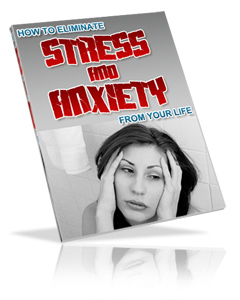Letting Go of Guilt
 |
Guilt can be seen as the price we pay when our behavior violates some standard or belief we hold. Invariably, therefore, by definition, guilt is not a good feeling. |
|
The feelings range from minor feelings of "discomfort" to significant negative feelings of regret, despair, or depression; and is a common reason many people seek therapy, since they can't let go of the guilt they feel. Some cases of guilt are deeply psychological and can, for example, relate back to childhood experiences or influences while other cases relate to recent events, circumstances or actions. Interestingly, in many cases, it is a feeling that is completely avoidable. |
|
Causes of Guilt
Guilt has many causes - and is different for everyone.
According to Psychology Today, here are the big categorical causes of guilt:
Guilt Cause #1: Guilt for something you did. The most obvious reason to feel guilty is that you actually did something wrong. This type of guilt may involve harm to others, such causing someone physical or psychological pain. You may also feel guilty because you violated your own ethical or moral code, such cheating, lying or stealing. Guilt over your own behavior can also be caused by doing something you swore you would never do again (such as smoking, drinking, or overeating). In each of these cases, there’s no doubt that the behavior occurred.
It’s appropriate to feel guilty when you’ve done something wrong. Feeling the emotion of guilt for an action deserving of remorse is normal; to not feel guilty, in these cases, may be a sign of psychopathy. The problems occur when you ruminate over this guilt. An action in the past cannot be changed, no matter how much you wish it would. Accept the fact that this happened, apologize to the person or persons you harmed, and then figure out how to avoid committing the same act in the future. If you’ve violated your own personal standards (such as through overuse of alcohol or cheating on your partner), you can best avoid straying in the future by seeking support from others who can help you rid yourself of this habit or help you to keep on the up and up. Finally, because of our natural tendency toward egocentrism, we assume that others place far more importance on our thoughts and actions than they actually do. The behavior over which you are tormented by guilt, such as inadvertently insulting a friend, may hardly have even penetrated that friend’s consciousness.
Guilt Cause #2: Guilt for something you didn’t do, but want to. You’re thinking about committing an act in which you deviate from your own moral code or engage in behavior that is dishonest, unfaithful, or illegal. Like Jimmy Carter, you may have mentally lusted after someone other than your spouse or long-term partner. This is a tough type of guilt to handle. It’s true that you didn’t actually commit the act, and so you’re still sitting on the moral high ground. However, we all know that the very fact that you’re contemplating an act that violates your own standards can be as guilt-provoking as the act itself.
If you're beating yourself up for these forbidden and taboo thoughts, you can try the good old Freudian defense mechanism of repression (where you stop up the hidden desire) or denial (where you don’t acknowledge it). However, this is unlikely to lead to a satisfactory outcome because by defending against your feelings, you may actually fall prey to them and behave in a way that gives you reason to feel guilty. An approach called Acceptance and Commitment Therapy (ACT) provides some guidance for how you can cope with this type of guilt. You can recognize that you have these illicit thoughts, accept them as part of who you are right now, and then, commit yourself to changing your behavior so that you don’t follow through on them. Rather than shove them under the surface, you can embrace your illicit thoughts and desires and work on reducing them through conscious effort.
Guilt Cause #3: Guilt for something you think you did. As cognitive theories of emotions tell us, much of the unhappiness we experience is due to our own irrational thoughts about situations. If you think you did something wrong, you can experience almost as much guilt as if you actually committed the act — or even more. One fairly typical cognitive source of guilt is the magical belief that you can jinx people by thinking about them in a negative or hurtful way. Perhaps you’ve wished that a romantic rival would experience some evil twist of fate. Should that evil twist of fate come to pass, you may, at some level, believe that it was due to your own vengeful wish. At some level you “know” that you’re being illogical, but it’s hard to rid yourself completely of this belief. We also know that our memory for past events is highly flawed. It’s possible for you to have done nothing wrong at all but to misremember and think that you did, particularly when there are highly charged feelings involved. Suspects can have false memories implanted into them that convince them that they not only were at the scene of a crime, but actually committed it.
Before you start accusing yourself of wrongdoing, make sure that the wrongdoing actually took place. If you’re distorting your recollection of events to make you seem more at fault than you are, it’s time for a hearty dose of reality testing.
Guilt Cause #4: Guilt that you didn’t do enough to help someone. Perhaps you have a friend who is very ill or who is caring for an ill relative. You’ve given hours of your free time to help that person, but now you have other obligations that you absolutely must fulfill. Or perhaps your neighbors suffered a tragic loss such as the death of a relative or fire that destroyed their home. You’ve offered days and weeks of your free time but, again, you find you can’t continue to do so. The guilt now starts to get to you and you try desperately to figure out ways to help them despite the toll it’s taking on you. Psychologists use the term compassion fatigue to capture this feeling of burnout. Though used typically to describe professional helpers, it can also occur among people who offer continued informal support to others in need. Adding to the overall emotional drain of the situation is the guilt you overlay on top of the fatigue because you think you should be doing more.
You can decide or not whether you want to continue to make the sacrifices needed to help these individuals. However, it’s important to separate your desire to help from the guilt you fear will overwhelm you if you don’t. Acting out of guilt can only drain you further and ultimately make you a less effective helper.
Guilt Cause #5: Guilt that you’re doing better than someone else. The experience of survivor guilt
is one recognized by professionals who work with combat veterans who
outlive their fellow troops. Survivor guilt also occurs when people who
lose families, friends, or neighbors in disasters themselves remain
untouched or, at least, alive. Applying not only to people who live when
others in the same situation have died, though, survivor guilt also
characterizes those who make a better life for themselves than do their
family or friends. First-generation college students, for example, often
feel torn by conflicting emotions about their success in school. They
want to do well (and their families want them to also), but the students
themselves feel guilty that they are getting opportunities that their
parents or siblings did not. To “protect” their family members, they may
engage in self-destructive behaviors that ensure they won’t make it in
school. Logic would dictate that the family truly want the student to
succeed (and thus bring honor to the family), but this logic is lost on
the student due to survivor guilt.
Letting Go of Guilt
Since there are so many causes of guilt, and everyone is different, letting go of this negative emotion can be very difficult - and generally takes time.
Importantly, though, it benefits no one (with the exception of people who have not learned from it and have the potential to repeat their mistakes if they do not hold onto it).
While emotions like guilt can be beneficial over the short haul, because it lets us know when we are going against the grain, long-term guilt really serves no purpose.
So, here are some steps to take to let go of guilt:
- The first thing required to let go of guilt is to be fully aware that you feel guilty and recognize how you might act out unconscious guilt.
- Next, you must identify, as clearly as possible, why you feel guilty. You must identify the circumstances, actions, people, or events that cause you to feel guilty.
- The next step is to ask yourself if your guilt is logical or not. This gives you a different perspective from which to view your actions. Ask yourself: "With the information and resources I had, did I do the best I could?" These kinds of questions may appear ridiculous with their obvious answer but they help you look at your guilt in a true light. Many times, when we say our guilt out loud or write them down, we can hear or see the illogic of them. It is also important to accept the fact that, as human beings, we are imperfect.
- Ask yourself, "what was my intention when I made the decision or action I feel guilty about?"
- Examine your standards when they conflict with your behavior. Look back at the behavior you feel guilty about from the perspective of a compassionate, non-judgmental friend. Then see whether you would apply the same standards as before.
- It might also be helpful to evaluate whether you may be carrying guilt or shame from your childhood that distorts your perspective now. If your standards seem too high, you need to tell your "Inner Critic" to back off and lower these standards.
- If you are afraid to lower your standards of behavior, you need to weigh out the pros and cons by asking yourself in each situation, "What do I stand to gain or lose if I lower them?"
- If your standards seem clearly appropriate, you need to acknowledge that your guilt was reasonable. Now you can use your experience for learning and improving your behavior.
- Sometimes, the only answer is to ask for forgiveness from a person or from God. This helps you to forgive yourself.
- With meditation or engaging in a spiritual activity, you can learn to use the power of presence to create an inner atmosphere of acceptance.
Other great resources to help you let go of guilt:
|
|
|
PLEASE CONSIDER...
If the information on this site helps you and you'd like to make a donation to BeHappy101.com (to help make others happy), please click on the button below to make a contribution. The amount you donate is entirely up to you. A portion will used to contribute to the happiness of others and is greatly appreciated. [WHY DONATE?] |








 I'm Jimmy, the founder and creator of this site and the whole BeHappy! system. My life's purpose is to be a positive, creative force for health and happiness and through this website, my books, coaching, and happiness-building programs, I intend to help as many people as possible live their happiest possible lives.
I'm Jimmy, the founder and creator of this site and the whole BeHappy! system. My life's purpose is to be a positive, creative force for health and happiness and through this website, my books, coaching, and happiness-building programs, I intend to help as many people as possible live their happiest possible lives.